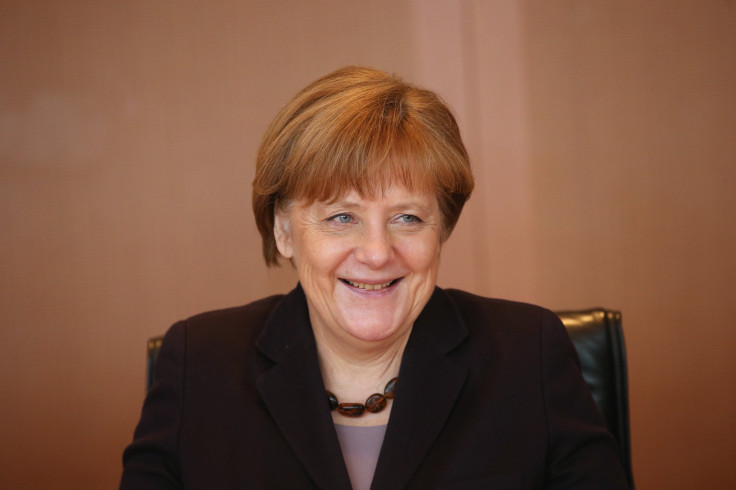Poll Support For German Chancellor Angela Merkel Surges Amid EU Terror Threat Following Brussels Attacks

A Forsa poll saw approval for German Chancellor Angela Merkel surge to pre-refugee crisis levels, the Local reported Wednesday. Amid fears of a growing terror threat in the European Union — following a March 22 attack on Brussels that left 32 people dead and several hundred wounded — Merkel's track record in keeping Germany safe seems to have caused a positive bump to her approval.
"Because the Brussels attacks raised the threat of terrorism, citizens are turning around and it's strengthening the established parties — just like after the Paris attacks," said Manfred Güllner, head of Forsa research.
More than half, or 52 percent of respondents, said they preferred having Merkel as chancellor, compared to lows of just 44 percent of respondents in the months following her September 2015 announcement of a controversial refugee policy.
The German chancellor set forth a policy in 2015 of openly welcoming refugees, saying there was "no limit" to the number of refugees Germany would take. She clarified that the asylum-seekers Germany accepts must be bona fide refugees who are fleeing persecution and not be economic migrants, during an interview with the daily Rheinische Post in September 2015.
"The fundamental right to asylum for the politically persecuted knows no upper limit; that also goes for refugees who come to us from the hell of a civil war," she said, the Associated Press reported.
Many Germans at first welcomed the refugees with open arms, meeting them at train stations with candy and water while chanting, "Refugees Welcome." More than 1 million asylum-seekers arrived to Germany in 2015, however, straining local resources in some cities and towns and consequently eliciting a backlash from residents.
German citizens who did not agree with Merkel’s policy increasingly flocked to opposition parties throughout the past year, such as the anti-immigrant Alternative for Germany Party. The euroskeptic group, whose leader once suggested that German border guards shoot asylum-seekers seen trying to cross into the country, won seats for the first time in three regional parliaments in state elections earlier this month.
© Copyright IBTimes 2024. All rights reserved.












